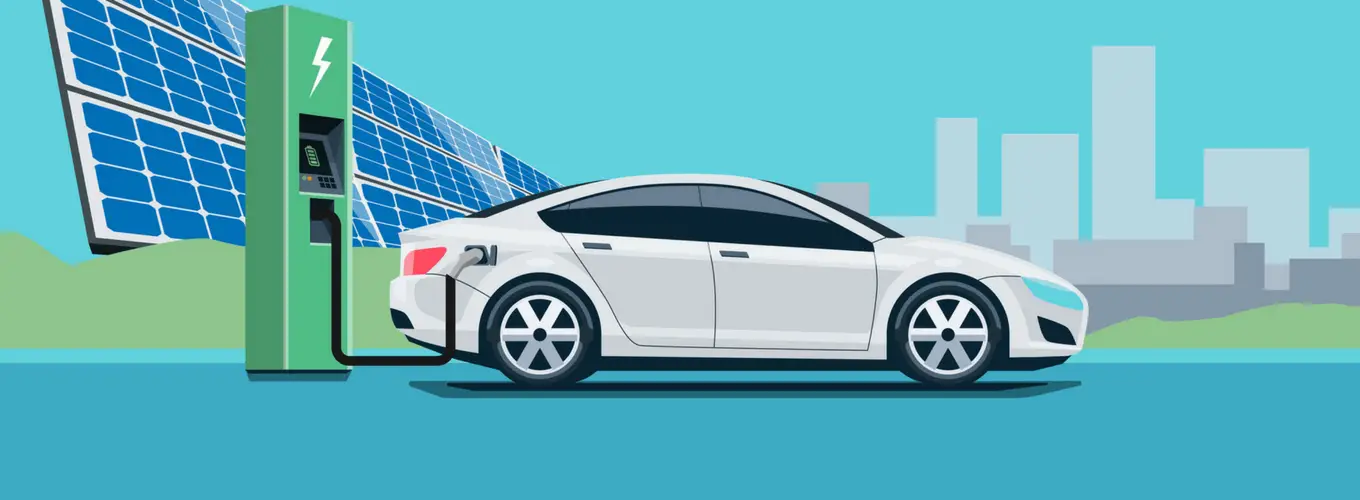
This year's Africa Climate Week ( ACW 2021)was organized by the UN Climate Change secretariat and the Regional Collaboration Center Kampala. The experts discussed ways of advancing the transition from the traditional form of transportation to fully electric on African roads. The current transport accounts for close to a quarter of carbon dioxide emissions globally due to fossil fuels. Urgent solutions need to decarbonize the mobility sector to achieve the temperature goals of the Paris Agreement.
South Africa is implementing sustainable transport policies, with just 10 % of transport sector emissions. The country has put in place a policy to boost e-mobility through differentiated taxation on vehicle registration. At the same time, charging infrastructure has grown exponentially, with charging stations deployed every 200-300 kilometers on major highways. Such policies can and must be scaled up and replicated in the region.
Some African countries are already integrating e-mobility into their targets for reducing greenhouse gas emissions as part of their national climate action plans, known as Nationally Determined Contributions, or NDCs.
It is widely known when you want to make some transitions challenges must be there, the transition to e-mobility in Rwanda, for example, involves mobilizing USD 900 million for electric vehicles and associated charging infrastructure.
During the event, there was a demonstration of e-bikes from Kenya and Uganda, which are part of the UNEP global e-mobility project. In both countries the growth of motorcycles is increasing with a high speed compared to cars over past years. Alexander Koerner, Programme Officer, UN Environment said the objective of the demonstration is to show that the technology is viable and can play a significant part in making the African transport sector much more sustainable.
Some challenges were reported by the project which are longer charging time, limited speed, mechanical and electrical failures, and restricted range. There is an urgent need for skill development in Africa. Shantha Bloemen, Director, Mobility for Africa, says we can’t roll out e-mobility if we continue to work in silos. We are building local skills, local mechanics, developing the practical skills we need that have massive potential for job creation. She underlined that Africa is a predominantly agriculture-based continent, with the majority still living in rural areas. To ease the transport mobility crisis in rural Africa, her organization is focusing on combining off-grid and battery swapping systems on low-speed three-wheeler vehicles.
Currently, the UN Environment Programme (UNEP), with funding from several donors, is implementing or has had electric mobility projects in Botswana, Egypt, Liberia, Malawi, Zimbabwe, Ethiopia, Ghana, Côte d'Ivoire, Kenya, Mali, Mauritius, Morocco, Mozambique, Namibia, Nigeria, Rwanda, Senegal, Togo, Uganda, and Zambia. These projects range from assessments of fiscal incentives for electric cars, policy support and demonstration studies about 2 and 3-wheelers, and evaluations of technology options for clean soot-free bus fleets including electric buses.
Now with funding from the Global Environment Facility, UNEP, the International Energy Agency, and other partners, we will be expanding this work in new locations including Togo, Sierra Leone, Seychelles, Burundi, and Madagascar. GEF funding will also allow for additional electric mobility work in Côte d'Ivoire. The activities will revolve around supporting demonstration studies and developing policy frameworks to support electric mobility.
According to the Changing Transport Organization report, between 2000 and 2016, Sub-Saharan Africa experienced a 75% increase in emissions, with transport emissions increasing by 153% in Ghana, 73% in Kenya, and 16% in Nigeria.
In Kenya, Stima Mobility enables moto-taxis to go electric by providing a network of charging stations to moto-taxi drivers. The main objective is to ensure everyone has electric motorcycles in Africa, says Emile Fulcheri, CTO at Stima Mobility. Beyond just business, Boda Bodas are also the backbone of public transportation in East African cities like Kampala and Nairobi. Often regarded as loud and unruly, these motorcycles weave in and out of traffic at breakneck speed. According to the Motorcycle Assembly Association of Kenya, the industry generates over $4M daily in Kenya.
In Uganda startups such as Zembo offer a lease-to-own model to motorcycle riders. For battery swapping services offered by Stima Mobility, riders use a pay-go system where they swap used batteries for an already charged battery.
For e-mobility to take off on the continent, we have to consider two factors: financing and reliable charging infrastructure. Both are currently lacking. Access to funding is a barrier to many Africans, but this is especially evident for the asset-heavy e-mobility sector.
The current E-mobility developments in Kenya:
E-mobility is key in supporting the government’s commitment to transform the transport sector into a low-carbon.
i) Reduction of excise duty on electric vehicles. The Finance Bill of 2019 has proposed a reduction on the excise duty for all vehicles with an only electric motors for propulsion (BEVs) from 20% to 10%.
ii) Development of standards for electric vehicles. The Kenya Bureau of Standards has developed and adopted standards that apply to electric vehicles imported into the country. Up until now, a total of 24 standards have been developed and adopted, covering specifications and testing procedures for safety aspects as well as performance and power consumption elements.
iii) Endorsement of private and development sector support.
-The government is involved in an e-mobility pilot with UN Environment where they will engage the City of Kisumu and Kenya Power & Lighting Company Limited through the deployment of a total of 50 electric motorcycles on a pilot basis.
-The SIEMENS Stiftung Foundation is piloting electric trucks, cargo bikes, and boats in Western Kenya through WE! Hub Victoria Ltd.
iv) Through cooperation with GIZ, the State Department of Transport is:
-Creating the necessary policy environment and regulatory framework for the uptake of e-mobility
-Developing awareness materials on the feasibility and advantages of e-mobility in the country
Source:
i) Advancing Electric Mobility in Africa
ii) Fiona Njagi (2021) Electric mobility in Africa could be the next big thing for global investors
iii) electric mobility in Kenya . The Facts.




